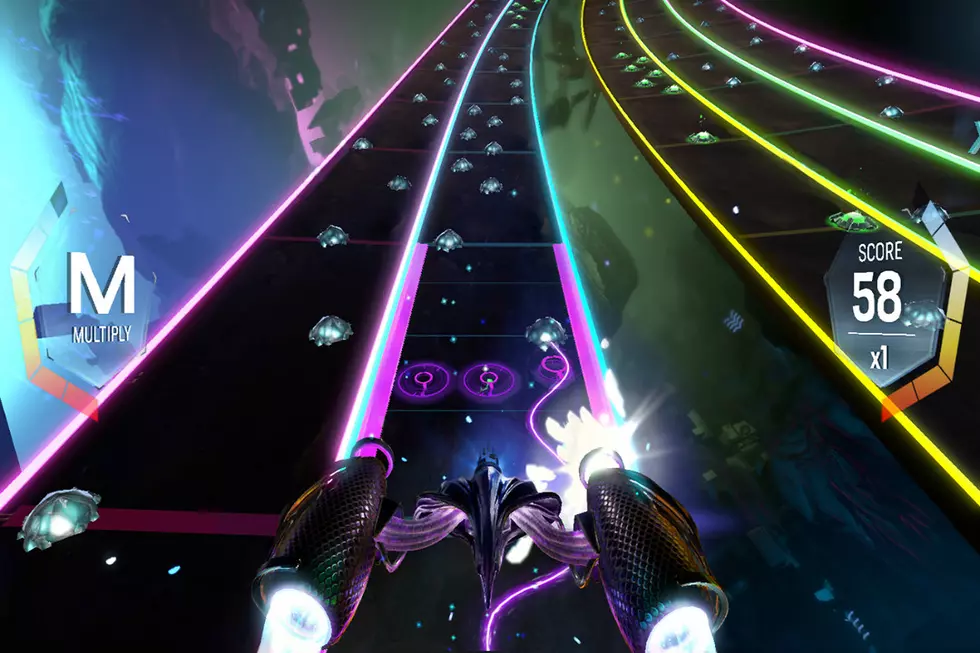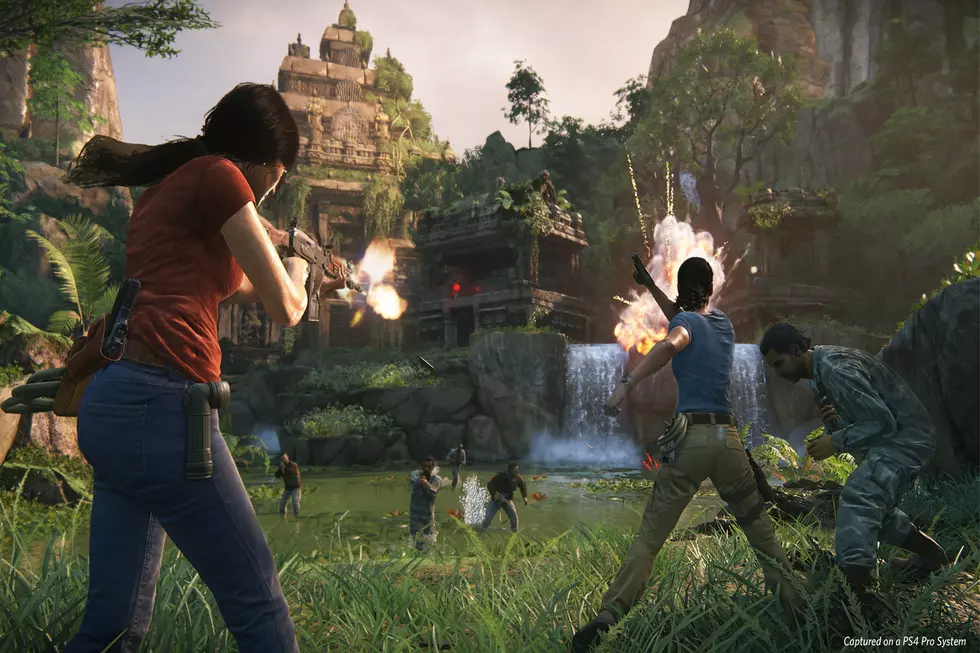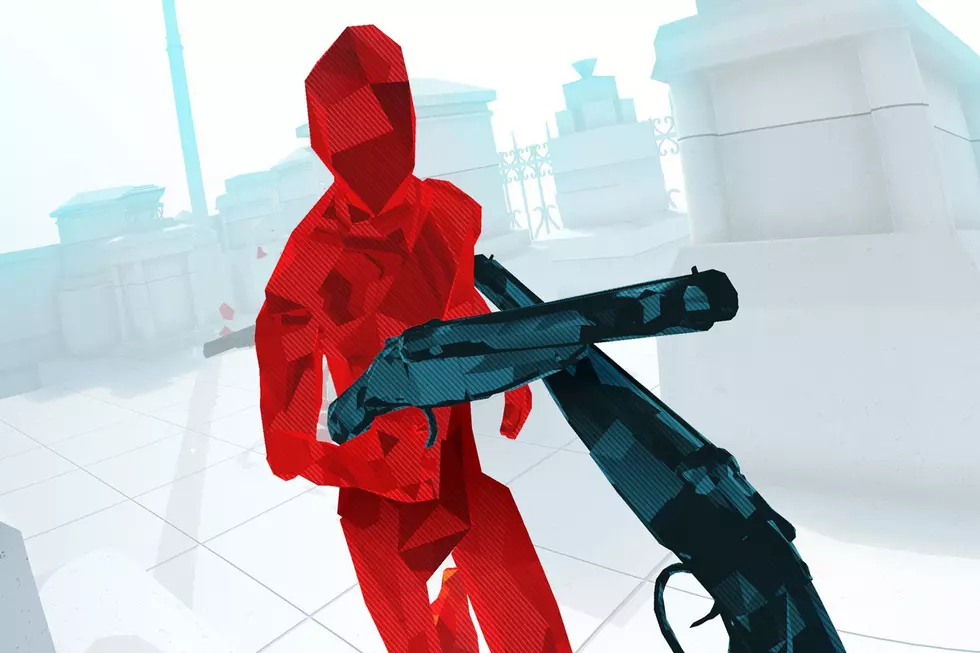
Amplitude Review (PlayStation 4)
The plastic peripheral-slinging music game developers at Harmonix have returned to their roots with a modern remake of Amplitude. This 2003 hit was a sequel to the studio's first game, Frequency. After a very successful Kickstarter campaign last year, Harmonix was finally able to get this revamped version of Amplitude up and running in order to give its now broader fan base a taste of what things were like when they were just starting out. Likewise, fans who may have played Amplitude and Frequency during their original runs on the PlayStation 2 (including myself) will have something relatively different and new to enjoy as they soak up all that nostalgia. Best of all, it's nice trip back in time to the later days of the PaRappa the Rapper and Bust a Groove era, when music games didn't focus on having a pricey instrument replica in your hand and just focused on getting your rhythm down and matching notes.
Like Rock Band and Guitar Hero, Amplitude's premise is easy to figure out but almost impossible to perfect. You control a ship moving along different lanes trying to reach a finish line, but the ship isn't really important when it comes to gameplay. As you progress through each track, you have to hit each note in rhythm to the song and as it appears on screen. There are three different notes to hit in varying orders, speeds and layouts, but you'll mainly be using L1, R1 and R2 to hit the left, middle and right notes. These notes obviously contribute to the level's song. Your ship can jump from lane to lane, and each labelled area represents the instruments (such as drums, synth, etc.) or vocals for the song playing. It's rather addictive and fun to see how each lane sequence contributes to your song; I enjoy hearing what happens when you hit (and miss) each note depending on your lane.
As you'd expect, you're encouraged to hit as many notes on-key as you can and combo them together for a higher rating and more points. You can occasionally unlock a power-up that will temporarily clear an entire instrument lane/segment for you to give you breathing room, acting as a sort of Star Power for the game. In Harmonix fashion, there are higher difficulties for each song, with tougher note sequences and chains to pull off depending on what you selected, which ups the replayability and inspires you to keep coming back.
Harmonix gave the visuals a nice overall and everything looks stellar. I personally get a kind of tunnel vision going on when playing scrolling music note-based games like Amplitude, so having to glance over at other lanes to prepare for the next notes in sequence felt a little strange at first. Luckily, the vibrant colors and twisting format of the lanes helped me prepare for split-second transitions that I probably wouldn't have been able to pull off if the lanes were more straightforward or dull in their layout and designs.
I dreaded to find out that the more famous songs from the original version of Amplitude are nowhere to be found in the remake. As blasphemous as it sounds, I was actually hoping to hear Papa Roach for the first time in over 15 years. Likewise, the Bowie, Slipknot and Weezer songs are all AWOL, along with a lot of the indie Hip-Hop acts I was hoping to hear again like Akrobatik and Styles of Beyond. Unfortunately, this makes Amplitude's soundtrack feel very one-dimensional in terms of genre offerings, which is a letdown for a music game.
A lot of the songs were done by Harmonix's own studio musicians, and the tracks feel like they bleed into one another after extended gameplay sessions. The tracks we do have cater to the type of gameplay and the out-of-this-world visuals, but it would've been nice to have a bit more variance in the song type. Most of the tracklist is stuck behind gameplay quotas, and some of them require hours of song-play just to unlock, which is a bit underwhelming considering how similar each song sounds compared to the next.
Amplitude is a proper return to form for one of Harmonix's most important games prior to the Guitar Hero era. Unfortunately, a similar-sounding tracklist reiterates how much of a shallow experience this is after a while. The Frequency-based tunnel mode is an interesting addition and is bound to add replay value for a lot of the Harmonix veteran players. There's a sort of campaign mode that is basically comprised of just multiple songs played in a row, but most will aim for the standard freeplay mode after a while in order to just pick specific songs.
Amplitude has multiplayer modes available, but as you'd expect the level layouts have less twists and turns when using it in order to reduce the on screen chaos. You're able to support up to four players in various ways, including 2v2 and 3v1, which is where you'll get the most bang for your buck in terms of enjoyment, because the single-player gameplay does get stale after a while. Considering its price, Amplitude is an solid alternative for those who don't want to break bank for the new Guitar Hero or Rock Band games and their pricey peripherals.
This review was completed using a digital retail copy of Amplitude provided by the publisher for PlayStation 4.
More From Arcade Sushi









